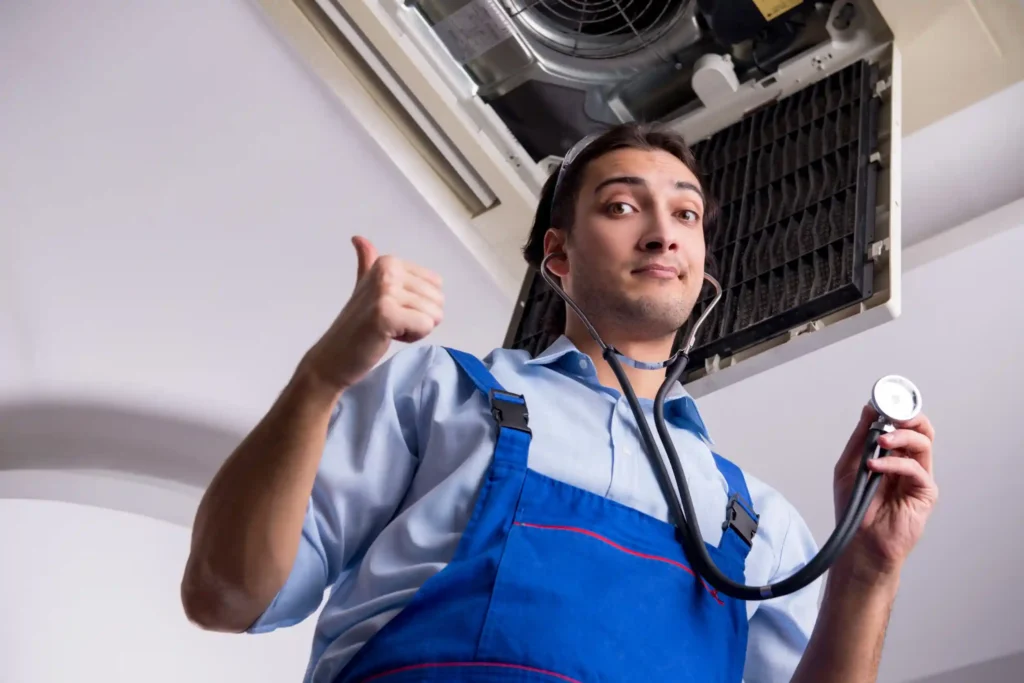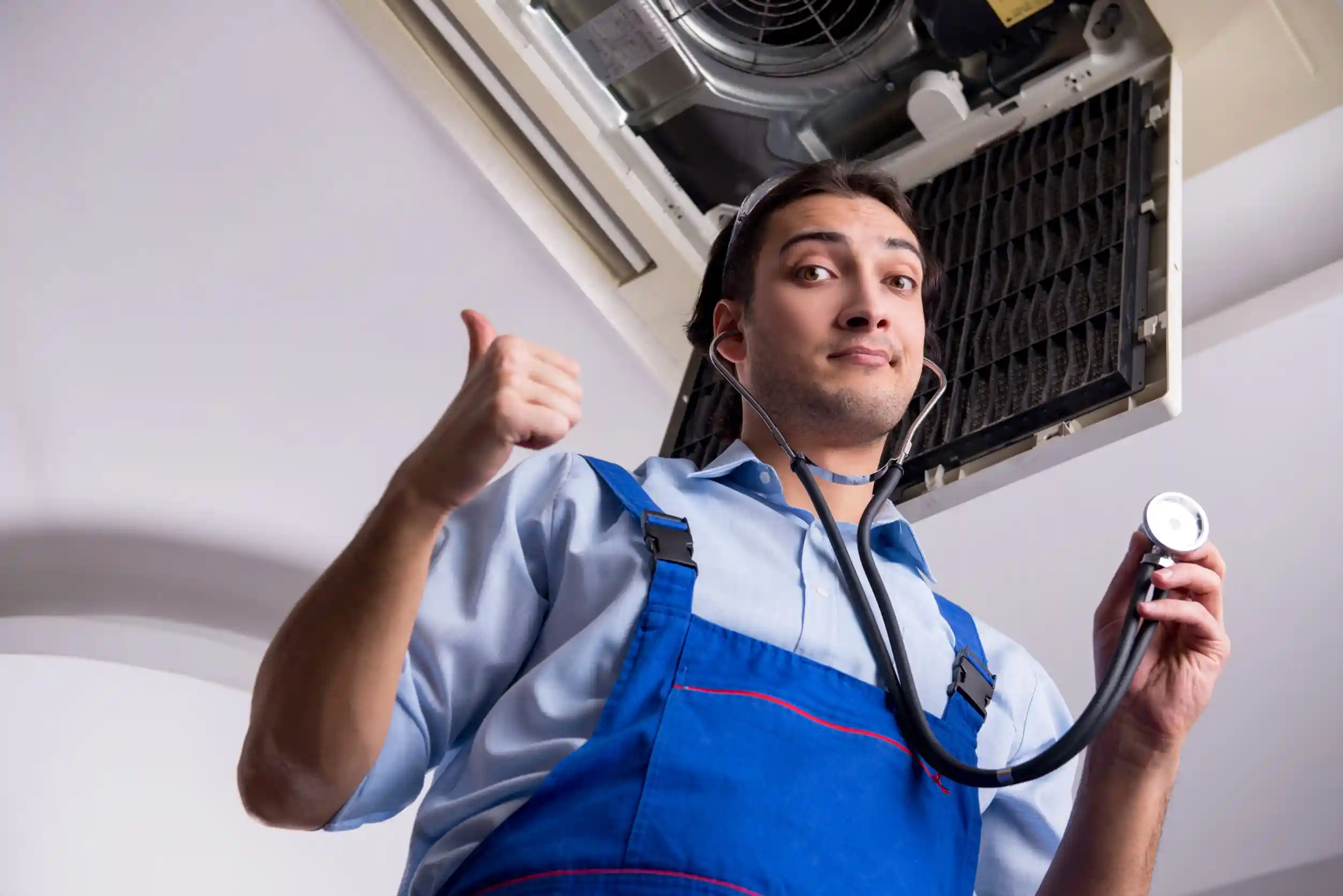The winter can have a significant impact on the efficiency and performance of your HVAC system if it is not properly maintained. While your air conditioning system has been keeping the house cool during summer, it could fail to keep it warm during winter if the heating portion of the system has a problem. Failure to maintain the HVAC system before cold weather could lead to high energy bills, less efficiency, and system breakdowns. In this article, we will discuss some of the maintenance steps you should follow to keep your HVAC system in good condition before the cold weather comes.
Clean vents and ductwork
Dirt, dust, and debris can accumulate inside the HVAC system over time, reducing the airflow and in turn, limiting the efficiency of the system. Fans may work harder to blow cool or warm air through your ductwork, causing the system to consume a lot of energy.

How is your HVAC system performing? We can help!
It could also cause respiratory problems or worsen underlying health issues like asthma. Taking time to clean your vents and ductwork not only increases the efficiency of your HVAC system but also improves your overall indoor air quality.
- Clean or replace the air filters
The air filters in your HVAC system are designed to trap dust, allergens, and other debris to prevent them from entering your home. This works to keep the air you breathe clean and free from airborne particles that could affect your indoor air quality. Over time, the filters may get clogged or worn out because of the amount of dust and dirt trapped within. Cleaning or replacing your air filters improves the airflow inside your HVAC system making it more efficient during the colder months of the year.
- Inspect the outdoor unit
Before the cold weather comes, it is essential to inspect the outdoor unit of your HVAC system to ensure it is functioning correctly. Some of the components of the outdoor unit include the compressor, fan, condenser coil, expansion valve, refrigerant lines, and other electrical components. All these serve to dissipate heat to the outdoors and maintain the system’s performance and efficiency. If either of these components is not functioning correctly, it could interfere with the efficient operation of your HVAC system, especially during winter. Having the outdoor unit inspected and cleaned not only improves efficiency but also extends the lifespan of your HVAC system.
- Test the thermostat
A thermostat is a crucial component of the HVAC system that helps regulate the temperature inside your home. It sends signals to the HVAC system to either cool or heat a specific area in the house to a desired temperature point. A malfunctioning thermostat can send inaccurate signals or fail leading to energy wastage and discomfort. Testing the thermostat before the cold weather kicks in can help you detect any problems early, reducing the chances of heating system failures during winter.
- Schedule professional inspection and maintenance
Fall season is the best time to schedule a professional inspection of your HVAC system as it allows you to detect critical issues before the cold weather arrives. The heating system needs to be examined for signs of wear and tear to ensure it is optimized sufficiently for the winter. A professional HVAC technician will test and calibrate the thermostats, check for ductwork leaks, lubricate moving parts, inspect electrical connections, and ensure the blower motor and fan are working correctly. Not only do they have the knowledge and experience but also use state-of-the-art tools and equipment to detect problems and ensure your HVAC system is functioning correctly.
- Insulate your home
Insulating your home may have a huge impact on how your HVAC system performs come winter. Not only does it keep your home warmer in cold weather but it also means your air conditioner won’t work harder during extreme temperatures. You will also have more consistent temperatures and a reduction in heat loss because of the thermal barrier created between the walls of your home. Proper insulation reduces the energy consumption of your HVAC system, which, in turn, leads to lower energy bills throughout the year.
It is important to perform proper maintenance to your HVAC system before winter as it guarantees comfort and peace of mind when you need it the most. Cleaning the ductwork and air filters, testing the thermostat, inspecting the outdoor unit, and insulating your home are some of the ways you can prepare your HVAC system for the cold weather. Most importantly, you should schedule a professional inspection and maintenance to ensure your HVAC system is functioning effectively and efficiently before the winter arrives.

